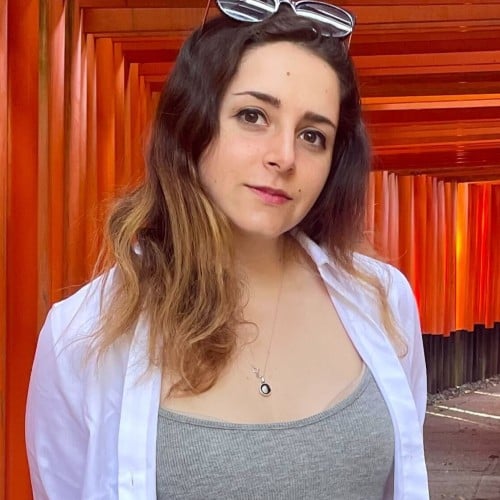
Hong Kong teen chess champions show practice pays off on the road to becoming grandmasters
- Winners from the ISF Academy Chess Open talk about their love of the game and why it’s worth all the hard work
- Every week, Talking Points gives you a worksheet to practise your reading comprehension with exercises about the story we’ve written
 Chloe Lau, 11, was named the top female player in the secondary section at the recent ISF Academy Chess Open. Photo: Kathryn Giordano
Chloe Lau, 11, was named the top female player in the secondary section at the recent ISF Academy Chess Open. Photo: Kathryn GiordanoChess can be a challenging game of intense concentration, strategy and tactics, where one false move could lose the game. In this taxing environment, young Hong Kong chess players Thanneermalai Kannappan and Chloe Lau show that hard work and practice can really pay off.
Thanneermalai and Chloe participated in the annual ISF Academy Chess Open in early March. The competition is open to young players from Hong Kong, Macau, and Shenzhen and split into four categories: age six and under, lower primary, upper primary and secondary. Thanneermalai, 15, won first place in the secondary section, beating out 61 other competitors, while Chloe, 11, was named the top female player in the same category.
Thanneermalai is no stranger to chess tournaments; the West Island School student has participated in at least 75 competitions, the first one at the age of five.
“Sometimes I feel pressure, but I’ve gotten used to it,” he said.
The win came as a surprise for Chloe, who ranked 12th among the 62 players in her category: “I thought I was not going to win anything. I was about to leave.”
Both Chloe and Thanneermalai take classes at The Chess Academy and learn from two grandmasters, the highest rank a person can achieve in chess: Andres Gallego from Colombia and Manuel Gomez from Spain.
Practice sessions might include calculating an opponent’s moves, studying strategies, or reviewing past games. But the teachers also want students to learn a more intangible lesson: how to fail.
“Competitions are not always fun; sometimes you have to deal with loss, with very tense moments,” Gomez said. “To recover from that moment, a player needs a passion for the game because if they don’t, it’s easy for them to get frustrated and give up.”
Learn about the history of chess
Love of the game
Under the training of his mother, who represented Hong Kong in the Chess Olympiad in 2016 and 2022, Thanneermalai began learning the game around the age of five and started taking it more seriously when he was 10.
In 2023, he came in second at the National Junior selections. However, the first-place player was unavailable, and Thanneermalai was recruited to represent Hong Kong at the 2023 FIDE World Youth U16 Chess Olympiad in the Netherlands. While his start in the tournament “didn’t go so well”, the group ended up ranking 43rd out of 63 teams – one of Hong Kong’s best performances in the annual competition.
Thanneermalai keeps his skills sharp by attending The Chess Academy twice a week, studying chess books, and reviewing moves at home with his mother. Unfortunately, with his school exams looming, he has less time to practise and sometimes can only train for 30 minutes a day.
“It’s quite difficult,” he shared. “But I keep trying because I like chess a lot. I try to make time for it. Sometimes, when I lose touch in chess, I get bad [results], and that hurts a bit.”
Despite the challenges, the teen maintains his dedication: “I think that I should never put a stop to it. Chess is worth going through.”
Celebrating chess champ Magnus Carlson
A new passion
Chloe spends much of her free time playing chess with her little brother Clayton, who won first place in the lower primary category at the chess open. Though she only started learning the game a year ago, the South Island School student has progressed immensely, which she credits to her 15 hours of weekly practice.
Thankfully, she doesn’t have a problem balancing school and chess: “I can do my schoolwork during the day and [practise] chess after dinner,” she said, adding that her main motivation for practising so much is to beat her brother.
Chloe, who has participated in about 15 tournaments, said she challenged herself in the March competition by competing in the secondary category rather than the upper primary section.
“I wanted to test my abilities,” she explained, adding that she won the prize for best female player in the upper primary section last year.
Though she has only just begun her chess career, Chloe has already set high goals for herself; she hopes to one day join the Hong Kong national team – which travels overseas for chess tournaments – and eventually become a titled player and, one day, a grandmaster.
To test your understanding of this story, download our printable worksheet or answer the questions in the quiz below.
